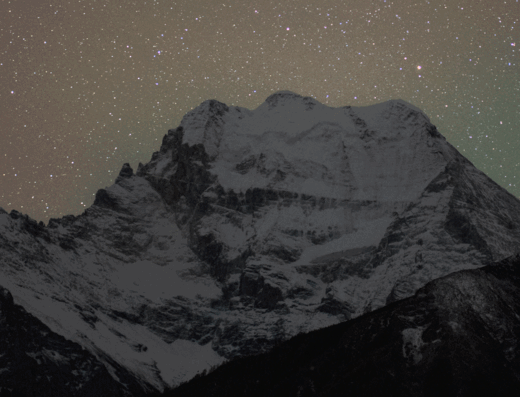
#BLUE #AVALANCHE #LIGHTS IN #CHINA: This might be something new. On the night of Oct. 27th, Chinese astrophotographer Shengyu Li set up his camera to record star trails over Mount Xiannairi in Sichuan, China. The long exposure had just begun when an icy serac broke free from a hanging glacier. Note the blue flashes within the ensuing avalanche:
"We have not found any previously documented cases of such an event, making this discovery both thrilling and intriguing for us," says Li. "Our initial hypothesis is that the luminescence may result from friction-induced lighting during the fragmentation of ice."
The phenomenon is called "triboluminescence." Legendary physicist Richard Feynman explains it best: "When you take a lump of sugar and crush it with a pair of pliers in the dark, you can see a bluish flash. Some other crystals do that too. Nobody knows why." You can create triboluminescent flashes yourself by smashing Lifesavers.
The avalanche Li witnessed was rich in ice. "It started with a blocky serac, which randomly calved from a glacier near the mountain's peak," says Carson Reid, a mountaineer who analyzed Li's movie. "The serac would have fragmented as it tumbled down and smashed into natural obstacles." The most significant "smash points" seem to have produced the most blue light.
Li shared his movie with other astrophographers in China. One of them found a similar blue flash in footage of a completely different mountain in Xinjiang, China three weeks earlier:
https://vimeo.com/1033143984
"This is a timelapse video taken by Ms. Lu Miao on Oct. 3rd," says Li. "It also shows a blue flash during an avalanche." The mountain is Muztagh Ata, which means "Iceberg Father" in English.
"None of us photographers noticed the blue light with our naked eyes—it was only discovered later when reviewing the photos," says Li. "However, I asked some friends who frequently photograph snow-capped mountains, and one of them mentioned having seen blue light with the naked eye during an avalanche, though they didn’t capture it on camera."
https://spaceweather.com/









































